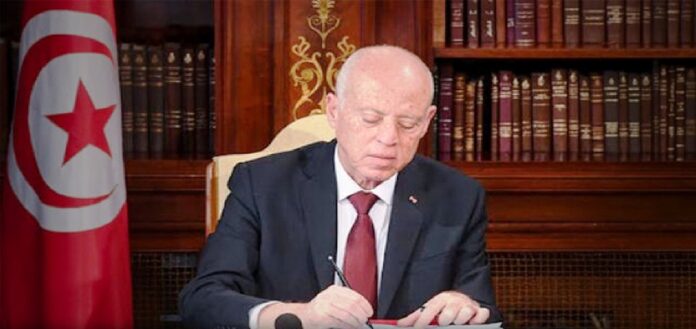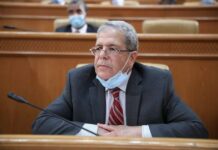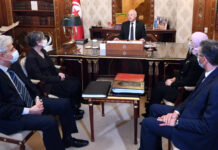The decisions announced by the President of the Republic Kais Saied, on the evening of July 25, in accordance with article 80 of the Constitution, and which concern the freezing of the activities of the ARP, the lifting of parliamentary immunity of all the deputies and the dismissal of the head of government, took by surprise all the observers of the Tunisian political scene as well as the international chancelleries. And if they aroused popular fervor, they were badly received, in particular by the Ennahdha movement which moved earth and sky to pass the thesis of the coup d’etat. Without getting there.
During his speeches, the Head of State has always made a clear statement of the situation of the country, which is getting bogged down day by day in a crisis that has affected all sectors. A moral crisis also which has not spared the average citizen incredulous, a disoriented citizen facing a deliquescent political landscape, marked by a kind of increasingly thick muddle and by dissensions which deepen an already yawning gap between the actors of the national scene some of which have given, inside the hemicycle, a poor image of politicians on the verge of “shamelessness”. A moral crisis that has had an impact on the behavior of Tunisians, their culture and their living together.
Le « sauveur »…
Suddenly Saied, once brocaded, has risen to the rank of the Messiah who will save the country from drift, rid it of thugs and looters of its wealth, before putting it back on track.
In recent weeks, the president has been very active in the fight against the pandemic. With the arrival of aid from several countries: vaccines, hospital equipment, oxygen … the vaccination campaign has accelerated. As of August 18, 2021, nearly four million people have received at least one dose of vaccine against Covid-19, or about 40% of the Tunisian population and it is hoped to reach a rate of 50% by end of September. This places our country in second place in Africa, with a total vaccination rate among the highest on the continent (18% as of August 18), behind Morocco with a rate of 32%.
The President has launched another campaign against corruption and impunity. It targeted almost everyone: businessmen, politicians, deputies, judges, senior officials of the administration… He tackled the thorny issue of phosphate and several arrests were made in the ranks of former officials. Three MPs are imprisoned, while others, notably those from al Karama, continue to taunt everyone, including the head of state himself. And not too much is known about their situation.
On the other hand, Ennahdha, accused of all the ills of the country, is for the moment spared. Only one of its leaders, former minister Anouar Maarouf, has been placed under house arrest. Hot issues like the transfer of young people to conflict zones, political assassinations, the secret apparatus of the Ennahdha movement, the involvement of certain parties in terrorism and others do not seem to be Kais Saied’s priority. At least for the moment.
Hence the disappointment of much of public opinion who expected the leading figures of the Islamist movement to be pilloried. Are they, at this point, untouchable?
The president is the symbol of national unity and he is the guarantor of the country’s stability and integrity. And it is in this capacity that he keeps repeating it. By deciding to take the bull by the horns, he has shown that he has no hesitation in the future. He had the courage to make the decisions needed to save the country from drift, turn things around and avoid the worst.
… and trifles
But beware ! If the good people vibrate in this hunt against the corrupt, and get intoxicated with each declaration of the head of state against the plotters of the night, they risk waking up tomorrow to a harsh reality: a country on its knees.
The war on corruption is a long war, if not a war of attrition. But it cannot hide the economic and financial disaster that looms in prayer.
Because, during this time, the country faces an unprecedented crisis. The economy is bloodless because of the pandemic in particular, with an external debt which has crossed the 90% mark, the slide of the dinar which weighs no more in front of the main currencies, a trade balance largely in deficit, an inflation which approaches the 6% and prices that follow an ascending curve.
In addition to the rise in unemployment, especially among young people (over 30%) and the impoverishment of the populations. The 2021 budget has yet to be met and negotiations with the International Monetary Fund have stalled. They will only resume following the formation of a government capable of reassuring national and international public opinion, and capable of carrying out courageous reforms.
The Tunisians who have often compared their country to “a drunken boat in the middle of impassive rivers”, the one described by Rimbaud in his poem which bears the same title and published in 1871, a boat without a master, heckled by the waves, which risks sink, seem to have found in Kais Saied, a master on board.
However, a man alone, even the very upright Caliph Omar, with whom he identifies himself, could not solve all the ills of the country.The “savior,” shouldn’t worry about the trifles.
Rifi-JDD











